Summary
Disclosure: This post contains affiliate links. If you purchase through them, we may earn a commission at no extra cost to you.SEO in 2025 isn’t the same game it was five years ago. Yet many website owners and businesses still rely on outdated tactics that actually hurt their rankings. This guide uncovers 10 common SEO myths holding you back—and shows what to do instead.
Introduction: Stop Letting SEO Myths Sink Your Site
Search engines are now smarter and more sophisticated than ever before. AI-driven algorithms, including advanced tools like Google’s AI Overviews, RankBrain, and cutting-edge models such as Perplexity, are at the forefront of determining your site’s visibility and overall reach. But here’s the critical problem we see today:
Many businesses are still stuck relying on outdated strategies that might have worked well in 2015—but won’t stand a chance in 2025.
In this thorough guide, we’ll debunk 10 widely believed SEO myths and provide you with practical, actionable tips so you can take back control and reclaim your rankings in the competitive digital landscape.
Myth #1: “More Backlinks Always Mean Higher Rankings”
Truth: In today’s dynamic and ever-evolving digital landscape, cutting-edge AI algorithms are designed to meticulously analyze and prioritize relevance, authority, and context, placing these critical factors far above the outdated practice of merely amassing a large quantity of backlinks.
Google’s systems, now more advanced than ever, possess the remarkable capability to detect and penalize manipulative link-building patterns almost instantaneously, ensuring fairer search results.
Action Step: Take proactive control of your online presence by conducting a thorough audit of your backlink profile using the powerful tool Backlink Phoenix. This invaluable process will enable you to identify and eliminate harmful toxic links while strategically refocusing your efforts on securing high-quality and reputable sources for maximum effectiveness.
Myth #2: “Keyword Stuffing Still Works”
Truth: Overloading keywords is a significant and undeniable red flag for AI systems. Modern search algorithms consistently place a strong emphasis on natural language, user intent, and overall readability in evaluating content quality.
Instead of relying heavily on repetitive, excessive, or unnaturally forced keyword usage, these systems prioritize meaningful and coherent text that genuinely addresses user needs.
Striking a balance between optimization and authenticity is absolutely critical to avoid penalties, maintain quality, and ensure long-term success in search engine rankings.
Action Step: Incorporate semantic keywords thoughtfully into your writing, ensuring they always flow naturally and seamlessly within the content.
Prioritize creating material that resonates with readers, and always focus on writing primarily for humans—not merely to appeal to bots or to manipulate or game the system in any way.
Myth #3: “Longer Content Automatically Ranks Higher”
Truth: Length alone doesn’t automatically guarantee success or better rankings. Search engines consistently prioritize usefulness and engagement, focusing much more on the quality of the information being presented rather than placing importance on sheer word count, filler content, or unnecessary verbosity simply added for the purpose of inflating text length.
Action Step: Focus on delivering genuine, meaningful value in every single sentence you write and produce. Optimize smartly for featured snippets by ensuring your content provides clear, concise, and highly actionable answers while directly addressing the specific needs and intent of the user in a straightforward and effective manner.
Myth #4: “AI Can Write Perfect SEO Content Alone”
Truth: AI tools like ChatGPT are incredibly useful and versatile assistants, offering remarkably impressive support in generating a diverse range of creative ideas and drafting high-quality, well-structured content with impressive efficiency.
However, these tools still require thorough, meticulous, and careful human editing to ensure not only factual and contextual accuracy but also proper alignment with your distinctive branding, overarching messaging, and unique overall tone of voice that reflects your identity.
Action Step: Combine AI-generated drafts effortlessly and seamlessly with your own personal expertise, individual creativity, and genuine, thoughtful insights to develop content that is truly impactful, deeply engaging, and highly resonant with your audience, leaving a lasting impression.
Myth #5: “Meta Tags Don’t Matter Anymore”
Truth: Meta titles and descriptions are still incredibly vital and play a significant role in boosting click-through rates, directly influencing user engagement and website traffic—even in today’s AI-powered SERPs where advanced search algorithms continue to evolve, adapt, and advance at a remarkably rapid pace, reshaping the way users interact with search results.
Action Step: Strategically and thoughtfully craft compelling, engaging, and attention-grabbing meta tags with strong, clear, and highly actionable CTAs that effectively stand out to users, grab their attention immediately, and encourage clicks by conveying value and urgency in a concise, persuasive manner.
Myth #6: “Nofollow Links Are Useless”
Truth: Nofollow links can still provide highly valuable traffic to your site, play a significant role in enhancing important brand signals, help build strong awareness, and indirectly contribute to boosting your rankings in search engines over time.
This happens when they are utilized strategically and thoughtfully as part of a well-rounded and comprehensive link-building strategy that prioritizes quality and relevance.
Action Step: Don’t limit yourself to chasing only dofollow links; instead, focus on prioritizing the creation of a well-balanced, natural, and diverse link profile. This approach should reflect quality over sheer quantity, ensuring that your efforts are not only sustainable but also aligned with best practices for achieving long-term success in SEO and maintaining credibility.
Myth #7: “SEO Is Dead in the Age of AI”
Truth: SEO has significantly evolved and undergone transformative changes over time—contrary to popular belief, it has not disappeared or become irrelevant.
AEO (Answer Engine Optimization) has become increasingly critical, playing a decisively influential role in modern digital strategies, and is now absolutely essential for achieving optimal visibility in AI-driven search results and dynamic environments.
This evolution underscores the importance of adapting to new technologies and prioritizing innovative methods to remain competitive in an ever-changing digital landscape.
Action Step: Take the necessary time and focus to carefully optimize your content thoughtfully and effectively for AI Overviews, voice search functionalities, and other advanced search technologies.
Ensure your strategies are aligned with the latest advancements by consistently updating and refining your approach to meet the demands of these sophisticated platforms.
Myth #8: “Social Media Doesn’t Affect SEO”
Truth: Social signals aren’t direct ranking factors, but they can significantly amplify your content’s reach, foster higher levels of engagement, and indirectly help attract valuable backlinks that contribute to overall visibility.
Action Step: Share your content actively and consistently across various platforms to maximize exposure, encourage interactions, and organically build strong backlinks.
Myth #9: “SEO Is a One-Time Fix”
Truth: SEO is not a one-time task but demands continuous updates and refinements as search engine algorithms consistently evolve and adapt.
Action Step: Schedule routine, detailed audits with Backlink Phoenix to ensure your strategy remains effective and keeps you ahead in the competitive landscape.
Myth #10: “You Can’t Compete Without a Big Budget”
Truth: With the right smart strategies, thoughtful planning, and a carefully chosen selection of free, effective tools, even small businesses with limited resources can achieve massive, transformative results in their marketing and growth efforts.
Action Step: Begin your journey toward sustained growth by utilizing Backlink Phoenix’s free and comprehensive SEO audit to uncover valuable, actionable insights that can drive measurable improvements and long-term success.
Frequently Asked Questions
Q: How often should I update my SEO strategy?
At least quarterly. Algorithms change frequently, and stale strategies lose effectiveness.
Q: Are backlinks still important in 2025?
Yes, but focus on quality and relevance over numbers.
Q: Can I do SEO myself?
Yes, with tools like Backlink Phoenix and ChatBasePro, you can make great progress even as a beginner.
Conclusion: Break Free from Myths and Rank Smarter
Are you ready to uncover what’s truly holding back your rankings and keeping your site from reaching its full potential?
👉 Run your free, comprehensive SEO audit now »

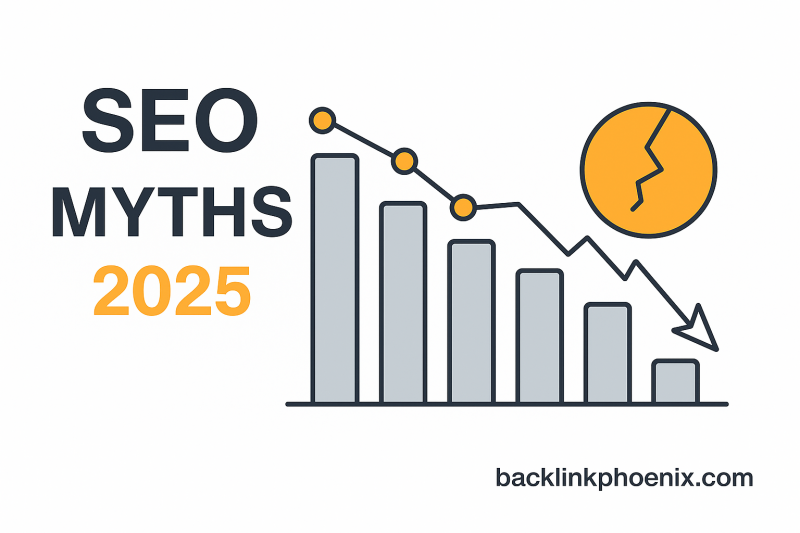
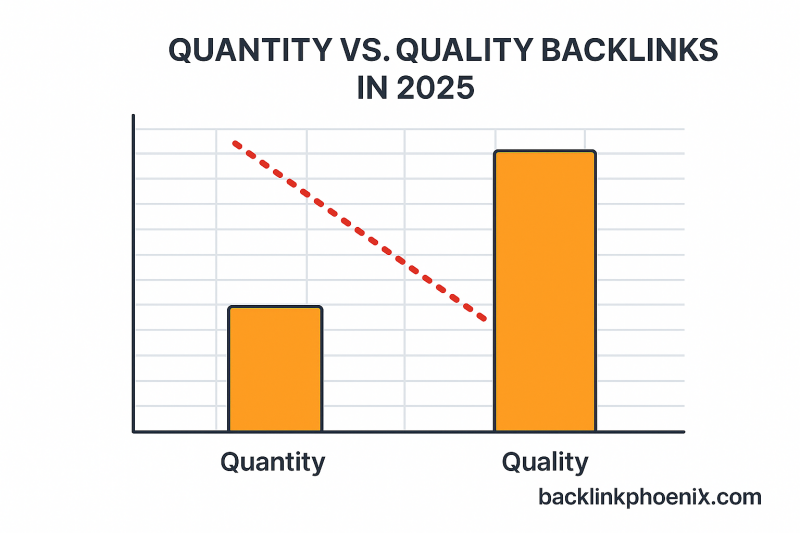

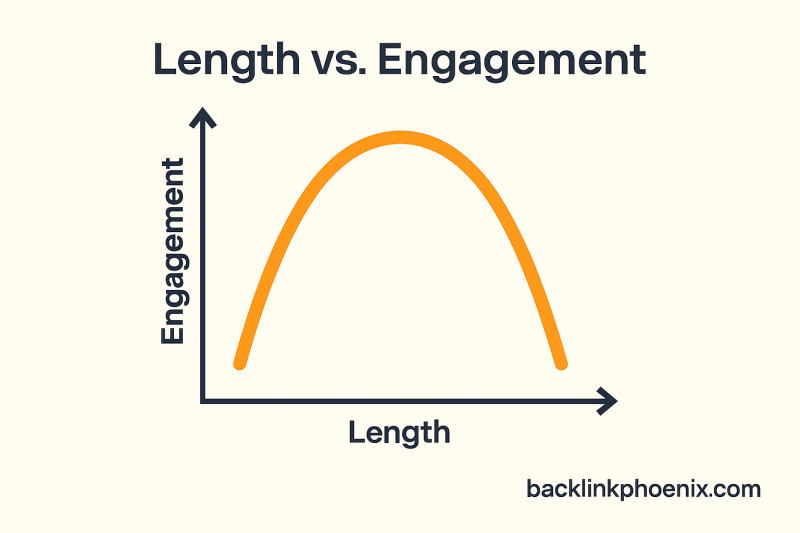
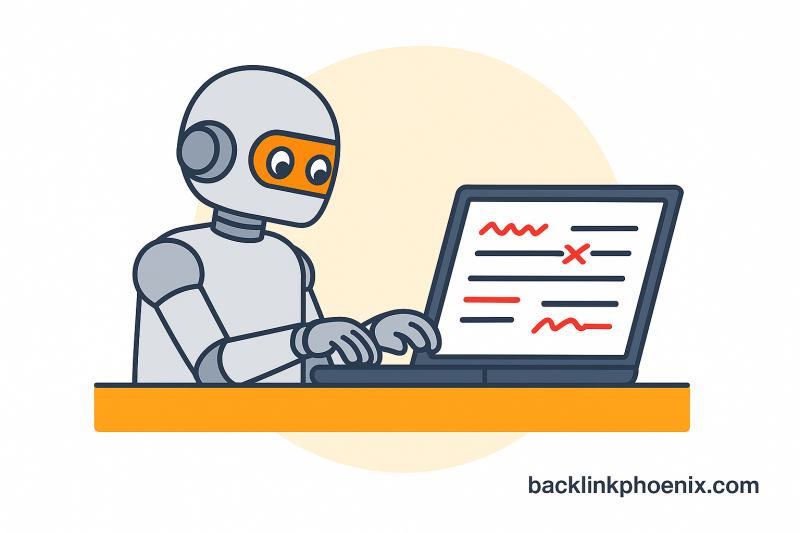

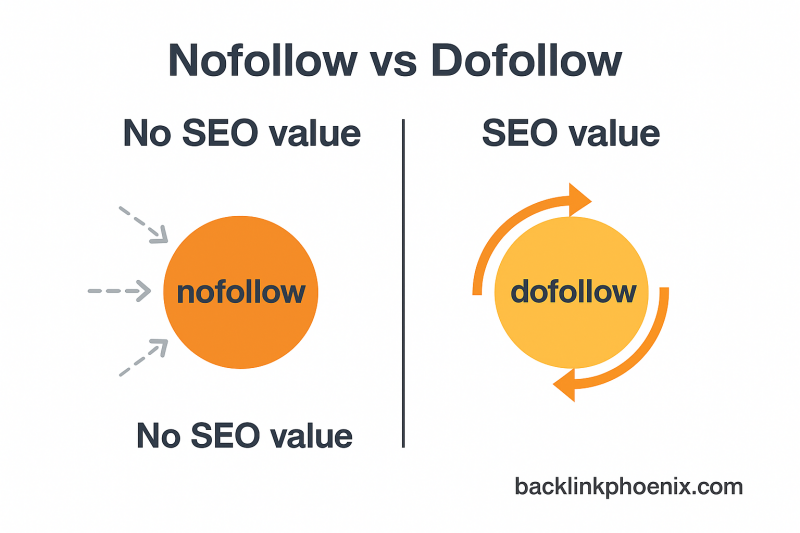


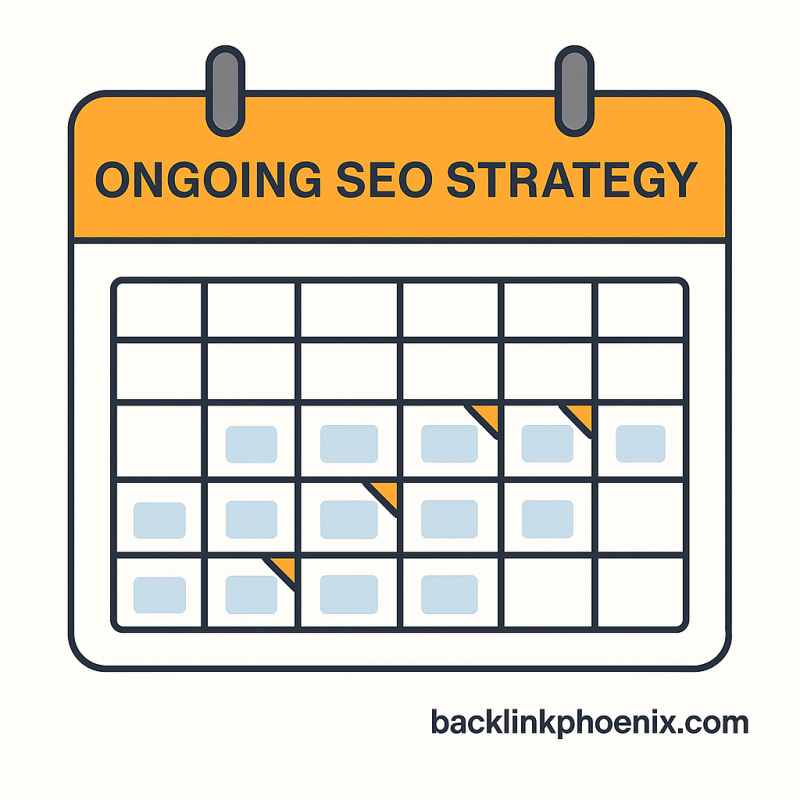

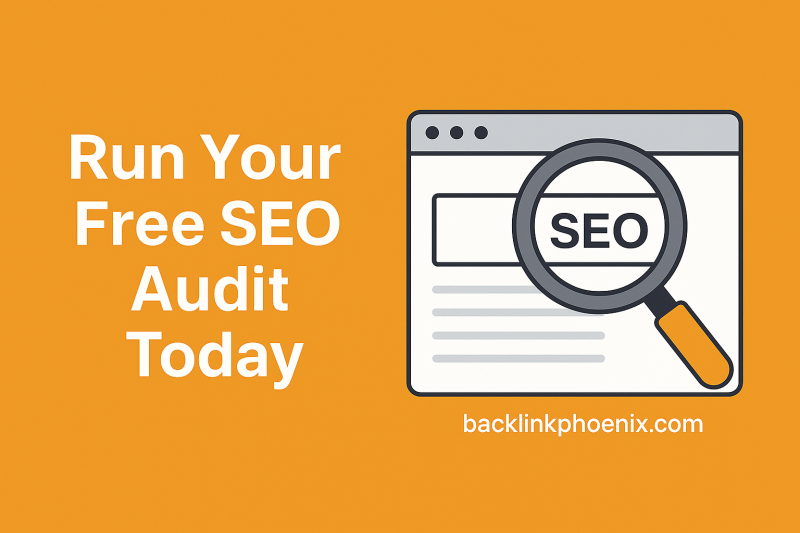
Add comment
Comments